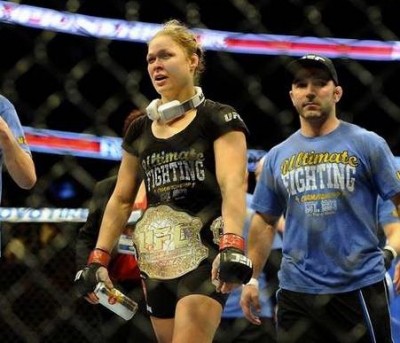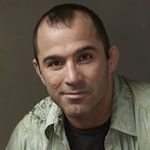
Since physical training is strictly based on individual needs, I won’t prescribe you a general training regimen. Instead I will provide you with some tools designed to help you get the best out of your current training program. In order to maximize your results, each workout should be custom designed based on individual strengths and knowledge of one’s weaknesses. Most people fail to reach their highest potential due to lack of self-awareness.
It is very important how one enters and conducts him/herself during their training session. Your performance will be directly proportional to your mental ability to manage your own resources. As you probably heard before, you are using only 10% of your brain capacity and believe it or not, since your body is the machine and your mind is the driver, you are using only 40% of your physical abilities. The following list are some mental tools designed to help one reach his/her highest potential.
- Meet your own expectations. In order to experience any growth you need to be satisfied/content with your performance and meet your own-set goals for that training session. After training, by saying, “I could have done better”, subconsciously you’re telling yourself that whatever you did that day wasn’t good enough; witch translates to “I’m not good enough”. That’s going to be your confidence killer and going to fuel your self-doubt on your competition day.
- Get into it not over it. While training, stop focusing on what’s next and pay attention on what you’re doing at the moment. You need to own the exercise instead of the exercise owning you. You can only do that by having total control of yourself and your breathing, and maintaining a perfect form/pace from start to finish. (Ex: you’re not doing 15 reps, you’re doing one rep 15 times).
- Commit. When you start any exercise, before engaging, commit to your time, pace and form during that particular exercise/time period as if nothing else exists. That way you’ll start training your brain to be present and focused through the entire exercise. You can start with a short period of time and as you own it, you can gradually increase to longer ones. Remember, your goal is not to run out of breath. Your goal is to have total control over your breathing/yourself at all time.
- Own your comfort zone. In order to be confident and take full advantage of your abilities, you need to acknowledge and eventually own your comfort zone. Your comfort zone is an intensity (along with great form) you can comfortably sustain for a certain period of time. If you have a treadmill handy and want to acknowledge your comfort zone (and to understand what I’m saying), perform this exercise:
Set your treadmill to a comfortable pace (Ex: 5.0); a pace you can sustain for a long period of time (45/50 min). Every 2/3/4 minutes, increase to a speed (Ex: 7.0) fast enough that you can only sustain for a minute and before crashing (running out of breath), get back to your comfort zone. Repeat this exercise for 45/50 minutes (interval training). After a while (a month or two), you will own your comfort zone. You will be very familiar with your breathing, posture and your performance during your comfort zone (intensity). Only when you own your comfort zone you can move up and increase the speed (aka your comfort zone). All of a sudden, what once used to be a pace hard to sustain (uncomfortable), it will become your new comfort zone (comfortable). That’s where the comfortable uncomfortable comes from.
- Feel good. Since your confidence is coming from your training and your training experience during your exercises, it is very important to feel good while doing it. Remember, feeling good is being in control of yourself (your breathing/form/performance), and the only time you are going to experience any growth. Failing to successfully complete an exercise is directly proportionate with your lack of ability to manage yourself and your own resources. Again, by doing that, you’re failing to meet your own expectations.
- Acknowledge your breaks. Training is not about cutting your breaks short, it’s about successfully sustaining an effort for a long period of time. If increasing your break with, let’s say 10 extra seconds, will help you improve your performance, take them. Don’t compromise your performance by cutting down on your fuel. When you’re taking a break, don’t think about what’s next, think about maximizing your oxygen intake. Remember, what you don’t acknowledge doesn’t exist; therefore, if you don’t visualize your breathing/breaks, you can’t take fully advantage of them.
- Rest during your exercise. Believe it or not, during every exercise there’s an opportunity for you to rest. Having a high self-awareness during your exercise will give you an opportunity to minimize your effort and maximize your performance. Exercising efficiently is using only the necessary muscle groups required to perform a particular routine while disengaging the others.
- Stay rational. Many athletes are emotional during training. Subconsciously you validate a poor performance by getting angry with yourself. Besides it will increase your heart rate by creating anxiety, it will also cloud your mind and distract you from your task. You are being an actor and your own audience at the same time.
- Believe in what you do. In order to grow and have confidence in yourself you must understand that what you do is right for you. Everything you do should make sense to you. Question everything if it doesn’t feel good. Own your training and your goals. Meet your own expectations. Set the right goals and train accordingly. Get some rest. Train smarter and not harder.
- Have fun. Training and competing should be fun. When you find yourself stressed and anxious about competing, ask yourself, why do I put so much pressure on myself? What happens if I lose? Believe it or not, nothing will happen if you lose but a lot can happen if you win. Your friends will still like you, your spouse will still have sex with you and won’t change who you are regardless of the outcome of your fight. Remember one thing, why do it if you don’t have fun doing it?
Good luck.
 Leo Frincu came to the United States from Communist Romania with $10, a back pack and four words of English. Now, he’s a businessman, renowned trainer and mentor for UFC women’s bantamweight champion Ronda Rousey. Among his many athletic accomplishments, Leo is a six-time Romanian wrestling champion, four-time European champion and was also trainer and coach for the 2003 U.S. Olympic Wrestling Team. Leo is the author of a new book, “Choosing Freedom,” which details the steps he took to leave the oppressive Romanian society through wrestling and how his experiences have helped him in the United States – going from a bus boy to successful entrepreneur. You can learn more about Leo Frincu on his website www.LeoFrincu.com. Also, follow Leo on Twitter @leofrincu and “LIKE” his page on Facebook.
Leo Frincu came to the United States from Communist Romania with $10, a back pack and four words of English. Now, he’s a businessman, renowned trainer and mentor for UFC women’s bantamweight champion Ronda Rousey. Among his many athletic accomplishments, Leo is a six-time Romanian wrestling champion, four-time European champion and was also trainer and coach for the 2003 U.S. Olympic Wrestling Team. Leo is the author of a new book, “Choosing Freedom,” which details the steps he took to leave the oppressive Romanian society through wrestling and how his experiences have helped him in the United States – going from a bus boy to successful entrepreneur. You can learn more about Leo Frincu on his website www.LeoFrincu.com. Also, follow Leo on Twitter @leofrincu and “LIKE” his page on Facebook.
[ads1]
